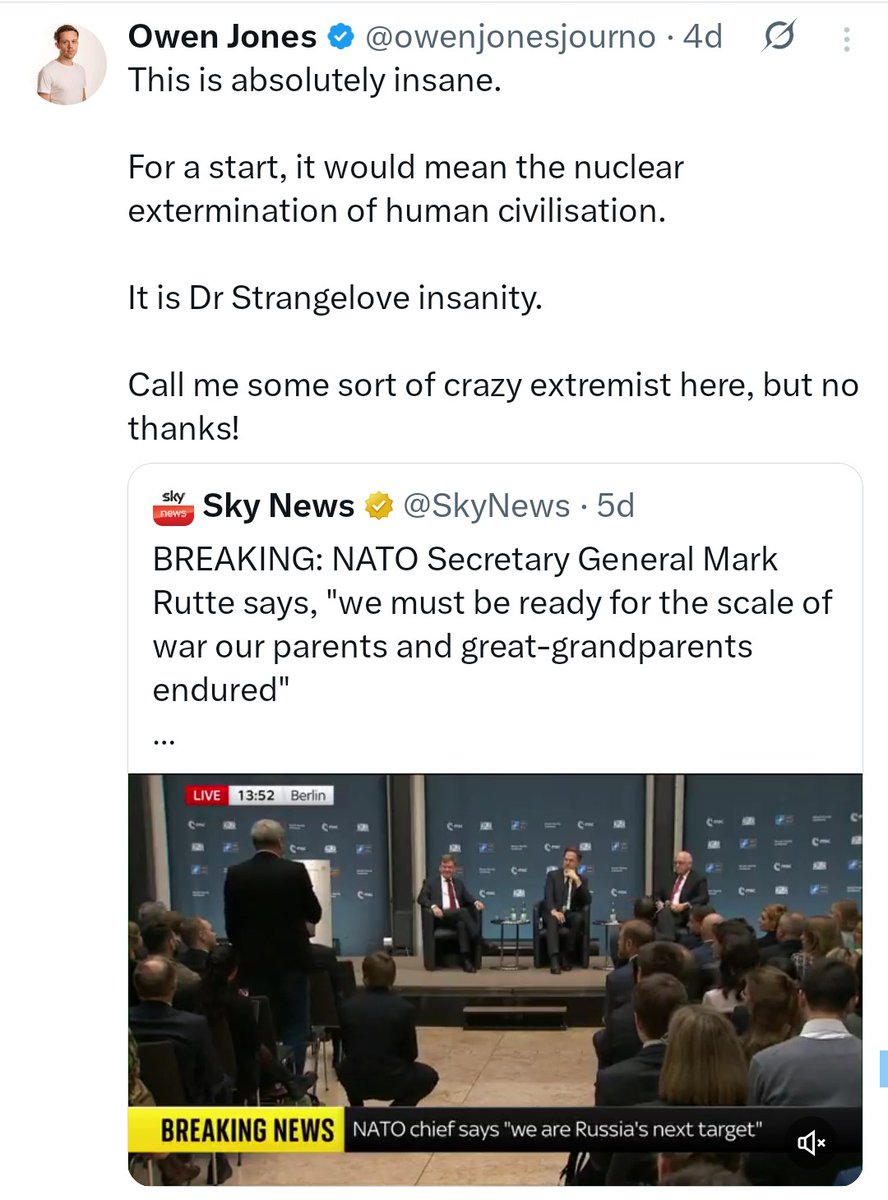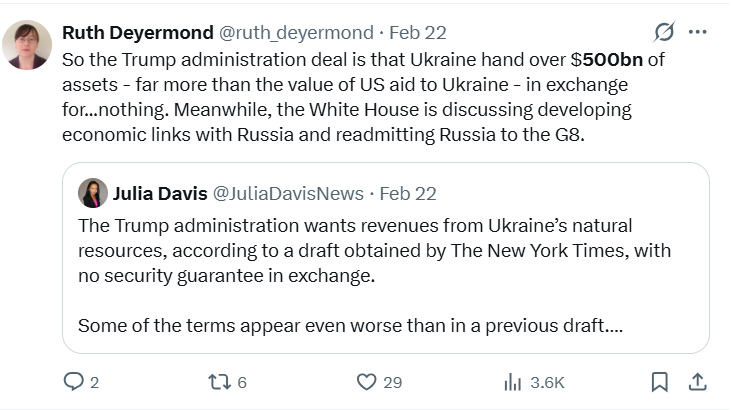I wonder if what looks ever more like a huge military, economic, and strategic disaster for Russia is a product of a category error by Putin, who failed to appreciate what type of Russian military action he was starting. (A thread – apologies for the length.)
In the post-Soviet period, significant Russian state involvement in conflicts, Wagner operations aside, has been of three basic types. All of them have been ones where Russia had a clear military or legal advantage.
Type 1 (the earliest) was Russian “peacekeeping” in the post-Soviet separatist conflicts outside its borders. Russian interventions in the 1990s in states like Moldova and Georgia sided with separatists in order to obtain leverage over the government concerned.
This normally meant a “peacekeeping” presence in strategically useful regions (Transnistria, Abkhazia), preventing host states joining Western institutions. The presence was permanent because the conflict was never resolved (and vice versa). Pre-Feb 22, Donbas was another e.g.
These were relatively low cost operations benefiting from local support in the separatist regions and relying on (a) the huge capability gap between the Russian armed forces (even at its 1990s weakest) and the host state, and (b) the West not caring enough to do anything about it
Type 2, related to type 1, is the short war in support of a theoretically separatist region but where rather than keeping the opposing sides apart as peacekeepers, the Russia substitutes for the separatist forces and aim to secure the region officially or unofficially for Russia.
This was true in 2008 in Georgia, where a “responsibility to protect” the Russian citizens it had created provided a (not convincing) justification for its military action which allowed it to de facto acquire 2 regions of Georgia. Broadly the same logic applied in Crimea in 2014.
As with type 1, Russia’s ability to achieve its objectives fairly easily depends on the capability gap between Russia and the states involved (in the case of Ukraine in 2014, partly a product of the fact that the annexation happened during a period of wider domestic turmoil).
And though Western condemnation and penalties were stronger in these cases, they were still fairly limited - certainly compared with the benefits.
Type 3 is participation in an internal conflict on the side of the state concerned, rather than the separatists/insurgents. Syria falls into this category as, obviously, do the two wars in Chechnya.
Russia’s involvement in the conflicts (whatever the illegality of actions on the ground) was legal because in one case it was at the request of the state involved and in the other it was itself the state involved.
Putin’s language on the 2022 invasion of Ukraine suggests he thinks this an intervention of the second type – a South Ossetia or Crimea operation on a larger scale. The signs that the Russian government and military weren’t expecting a long conflict also suggest this.
But the invasion (or rather, the full scale invasion, since the invasion began in 2014) is none of these types of conflict – it’s war of a kind that Russia hasn’t previously tried to wage at any point in the post-Soviet period.
It’s a straight-up, illegal war of aggression involving horrendous war crimes against the civilian population, intended to effect regime change and to assert Russian hegemony (by re-orienting a puppet Ukraine back towards the “Russian world”).
And it’s not against a small, weak state with a small, weak army, and it’s not being fought in a largely pro-Russian region. And because it’s not an internal Russian issue, the war crimes being committed haven’t attracted the same semi-tolerance from external actors.
And just as importantly, partly because of these things, partly because of the cumulative effect of Georgia and Crimea and the wider collapse in Russia-West relations, the West is no longer indifferent or half-hearted in its response.
In assuming (and I have no idea why he did this, if he did) that he was involving Russia in a type of conflict that had worked for it before, Putin has dragged Russia into a war with devastating costs and which it cannot, in the long term, win. It’s a staggering mistake.
• • •
Missing some Tweet in this thread? You can try to
force a refresh









